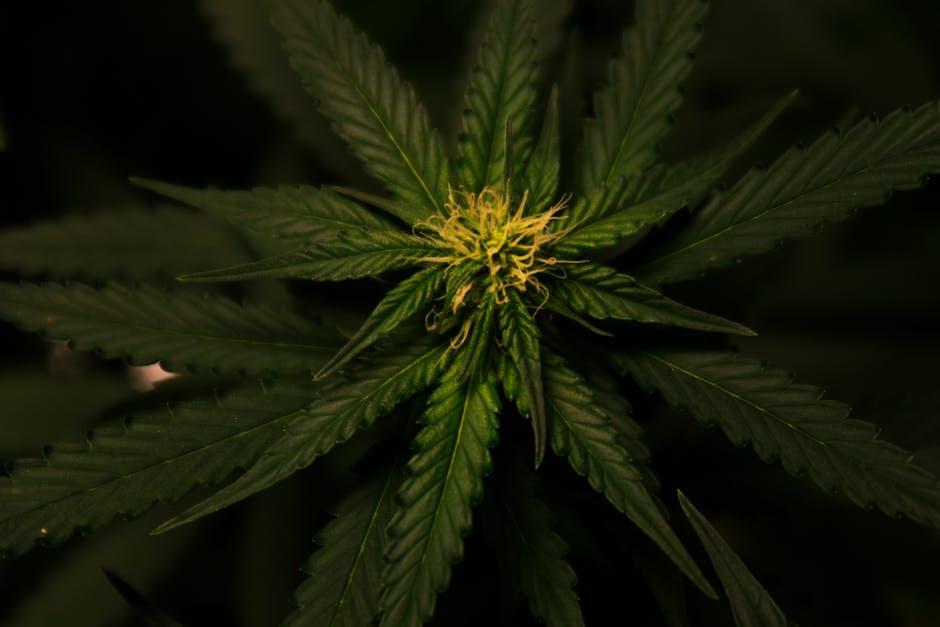In the hazy realm where cannabis meets the mind, a topic of growing concern emerges – cannabis-induced psychosis. As society’s relationship with this once-taboo herb evolves, so too does our understanding of its potential impacts on mental health. Delving into the intersection of cannabis and psychosis uncovers a complex landscape where myths, facts, and uncertainties intertwine. Join us on a journey through this intriguing terrain as we shed light on the phenomenon of cannabis-induced psychosis, exploring the nuances that lie beneath the surface.
Table of Contents
- Understanding Cannabis Induced Psychosis: Symptoms and Causes
- Navigating the Treatment Options for Cannabis Induced Psychosis
- Preventing Cannabis Induced Psychosis: Lifestyle and Harm Reduction Strategies
- Dispelling Common Myths about Cannabis and Psychosis
- Supporting Loved Ones Through Cannabis Induced Psychosis Challenges
- Q&A
- Wrapping Up
Understanding Cannabis Induced Psychosis: Symptoms and Causes
Cannabis induced psychosis can manifest in various symptoms that may be alarming and disruptive. These symptoms often include hallucinations, delusions, confusion, and disorganized thinking. Individuals experiencing cannabis induced psychosis may exhibit behaviors that are out of character, leading to distress for both the affected person and those around them.The causes of cannabis induced psychosis are multifaceted and can be influenced by a combination of genetic predisposition, frequency and amount of cannabis use, and underlying mental health conditions. For some individuals, using cannabis in large quantities or with high potency can trigger psychotic symptoms. The interaction between cannabinoids in cannabis and the brain’s neurotransmitter system may also play a role in the development of psychosis.
It is crucial for individuals who experience symptoms of cannabis induced psychosis to seek medical attention promptly. Early intervention by healthcare professionals can help in managing symptoms effectively and preventing further escalation. Treatment options may include medication, therapy, and lifestyle modifications to promote overall well-being and mental health stability. By addressing the root causes of cannabis induced psychosis, individuals can work towards recovery and better management of their condition.

Navigating the Treatment Options for Cannabis Induced Psychosis
Navigating the world of treatment options for cannabis-induced psychosis can be both overwhelming and crucial for those affected by this condition. Understanding the available treatments can significantly impact the management and recovery journey. Here are some key approaches to consider:Therapy: Therapy, such as cognitive-behavioral therapy (CBT), can be highly beneficial for individuals experiencing cannabis-induced psychosis. This type of therapy can help patients recognize and change thought patterns and behaviors contributing to their symptoms. It provides coping strategies and tools to deal with psychosis episodes effectively.
Medication: In some cases, healthcare providers may recommend medications to manage symptoms of cannabis-induced psychosis. Antipsychotic medications are commonly prescribed to help alleviate hallucinations, delusions, and other psychotic symptoms. It’s essential to work closely with a healthcare provider to find the right medication and dosage that works best for each individual’s needs.
Support Groups: Joining support groups or engaging in group therapy can offer valuable peer support and a sense of belonging. Connecting with others who are going through similar experiences can help individuals feel less isolated and provide a platform to share experiences and coping strategies. These groups can be a source of encouragement and understanding during challenging times.
| Treatment Option | Benefits |
|---|---|
| Therapy (CBT) | Provides coping strategies and tools |
| Medication (Antipsychotics) | Alleviates hallucinations and delusions |
| Support Groups | Offers peer support and sense of belonging |


Preventing Cannabis Induced Psychosis: Lifestyle and Harm Reduction Strategies
In the realm of harm reduction strategies, a proactive approach holds the key to mitigating the risks associated with cannabis use. Implementing lifestyle changes that promote overall well-being can significantly contribute to preventing cannabis-induced psychosis and related complications. Engaging in activities that enhance mental resilience, such as mindfulness practices and regular exercise, can bolster one’s ability to navigate the potential challenges associated with cannabis consumption.Here are some lifestyle and harm reduction strategies to consider:
Limiting Usage: Moderation is crucial when it comes to using cannabis. Setting boundaries and sticking to them can help reduce the likelihood of experiencing negative psychological effects.
Seeking Support: Cultivating a strong support system comprised of understanding individuals can provide a valuable source of guidance and comfort. Having someone to talk to about concerns related to cannabis use can offer a fresh perspective and emotional support.
Understanding Triggers: Identifying personal triggers that may exacerbate the risk of cannabis-induced psychosis is essential. By recognizing these triggers, individuals can take proactive steps to avoid situations that might heighten vulnerability.
| Harm Reduction Strategy | Description |
|---|---|
| Mindfulness Practices | Engaging in activities that promote mindfulness, such as yoga or meditation, can help individuals maintain mental clarity and emotional balance. |
| Healthy Sleep Habits | Prioritizing quality sleep plays a vital role in overall well-being and mental health. Establishing a consistent sleep routine can aid in reducing the negative impact of cannabis on sleep patterns. |
<p>As the debate around cannabis and its potential effects on mental health continues, it's crucial to separate facts from fiction. One common misconception is that cannabis always leads to psychosis, but the reality is more nuanced than that. While there is a link between cannabis use and psychosis for some individuals, it's not a guaranteed outcome.</p>
<p>Research shows that factors such as genetic predisposition, frequency and amount of cannabis use, as well as the age of onset of use, play significant roles in whether someone may experience psychosis. It's essential for individuals to be aware of these nuances and understand that not everyone who uses cannabis will develop psychosis.</p>
<p>Moreover, not all strains of cannabis are alike, and some may have different effects on mental health. CBD, a non-intoxicating compound found in cannabis, has actually shown potential in alleviating symptoms of psychosis, showcasing the complexity of the plant and its impact on mental well-being.</p>





0 Comments